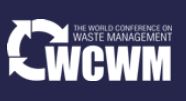RELATIONSHIP BETWEEN LEVEL OF AWARENESS AND WILLINGNESS TO PARTICIPATE IN RECYCLING
DOI:
https://doi.org/10.17501/26510251.2022.3104Keywords:
Awareness, municipal solid waste, recycling, willingness to participateAbstract
Municipal solid waste is increasingly becoming a significant environmental challenge as a result of population growth and rapid development. Accordingly, environmental degradation such as air and water pollution as well as disease spread could happen. Recycling is the best approach to reduce environmental impacts from mismanagement of municipal solid waste. This study focuses on the recycling awareness level and willingness to participate in recycling practices as these two elements are the key factors affecting recycling behavior. Puchong suburban residential area is selected as the study area because most of the waste is generated in residential areas. A total of 424 residents were selected through multistage sampling, a combination of cluster random sampling and simple random sampling to participate in this research. The respondents are surveyed through a mixed-mode method to gather their perspectives towards recycling practices in daily lives. The questionnaires distributed consisted of three sections for socio-demographic background, recycling awareness and willingness to participate, respectively. The results discovered that the residents had a high awareness level of recycling with an overall mean of 4.08. Moreover, the residents were greatly willing to participate in recycling with an overall mean of 4.07. Besides, Kendall’s tau-b correlation, r = 0.451 and Spearman rank-order correlation, r = 0.600 showed that there was a moderate correlation between recycling awareness and willingness to participate. Therefore, to encourage the public’s participation and contribution towards recycling, local authorities shall continually take decisive actions to promote recycling awareness and disseminate recycling information. In addition, this research contributes to the knowledge of relationship between the two variables.
Downloads
References
Akil, A. M., Johar. F., & Ho, C. S. (2015). Household Participation In Recycling Programs: A Case Study From Malaysia. Biro Penerbit Planologi UNDIP, 17(2), 64-75.
Bashir, M. J. K., Tao, G. H., Abu, A. S. S., & Tan, K. W. (2018). Public concerns and behaviors towards solid waste minimization using composting in Kampar district, Malaysia. Global Nest Journal, 20(2), 316–323.
Connelly, L. M. (2008). Pilot studies. Medsurg Nursing, 17(6), 411-422.
Chung, C. Y., Yeong, W. M., Munusamy, K., Peng, L. M., Nair, M., Yean, U. L., & Management, E. (2019). Government Initiatives and Public Awareness. Tourism, Hospitality and Environment Management, 4(14), 40–50.
Department of Statistics Malaysia. (2020). Compendium of Environment Statistics, Malaysia 2020. https://www.dosm.gov.my/v1/index.php?r=column/cthemeByCat&cat=162&bul_id=TjM1ZlFxb3VOakdmMnozVms5dUlKZz09&menu_id=NWVEZGhEVlNMeitaMHNzK2htRU05dz09
Fowler, J., Cohen, L., & Jarvis, P. (2009). Practical Statistics for Field Biology. Wiley, 2, 132.
Gusti, A. (2015). The Behavioral Intention to Implement Sustainable Waste Management on Primary School Students in City of Padang, Indonesia. International Journal of Innovation and Applied Studies ISSN, 13(2), 2028–9324.
Mohd Halim, N. F., Wati Mohd Darwis, N. Z., & Martin, J. (2018). Awareness and willingness among the residents in Johor Bahru City Council and Johor Bahru Tengah Municipal Council of Iskandar Malaysia-Im (Wpi@Sjer) towards recycling. MATEC Web of Conferences, 150, 4–7.
Musbah Swesi, A. E., Mallak, S. K., & Tendulkar, A. (2019). Community Attitude, Perception and Willingness Towards Solid Waste Management in Malaysia, Case Study. Journal of Wastes and Biomass Management, 1(1), 09–14.
Noor, Z. Z. (2016). Towards Sustainable Household Waste Management in Urban Areas: Determinants That Hindered The Recycling Activities in The City of Johor Bahru, Malaysia. Malaysia Sustainable Cities Program, 1–20.
Polit, D., & Beck, C. (2006). The content validity index: Are you sure you know what’s being reported? Critique and recommendations. Research in Nursing & Health, 29, 489-497.
Saat, S. A. (2015). Public Participation in Waste Recycling in Malaysia. Institute for Youth Research Malaysia, 157–171.
Sedgwick, P. (2015). Multistage sampling. BMJ. 351.
Talip, A. R. A., Draman, N. Z., Martin, J., Ismail, H. B., Hasan, A. C., & Jamal, M. H. (2019). Malaysian Household Perception Towards Recycling and Waste Generation: A Case Study at Northern Region Housing Area. Proceedings of the Regional Conference on Science, Technology and Social Sciences (RCSTSS 2016), 2020, 577–585.
Yaghmaie, F. (2003). Content validity and its estimation. Journal of Medical Education, 3(1), 25–27.
Zaipul, A. Z., & Ahmad, R. S. (2017). Policies, Challenges and Strategies for Municipal Waste Management in Malaysia. Journal of Science, Technology and Innovation Policy, 3(1), 18–22.
Zaipul, A. Z., Syukri, W., Mohamad, W., & Songip, A. R. (2015). Present and Future Innovation in Solid Waste Management in Malaysia. International Conference on Waste Management, Ecology and Biological Sciences, 21–27.
Zamanzadeh, V., Rassouli, M., Abbaszadeh, A., Majd, H., Nikanfar, A., & Ghahramanian, A. (2014). Details of content validity and objectifying it in instrument development. Nursing Practice Today, 1, 163-171.
Downloads
Published
How to Cite
Issue
Section
License
Copyright (c) 2022 Proceedings of the World Conference on Waste Management

This work is licensed under a Creative Commons Attribution 4.0 International License.

This work is licensed under a Creative Commons Attribution 4.0 International License.






